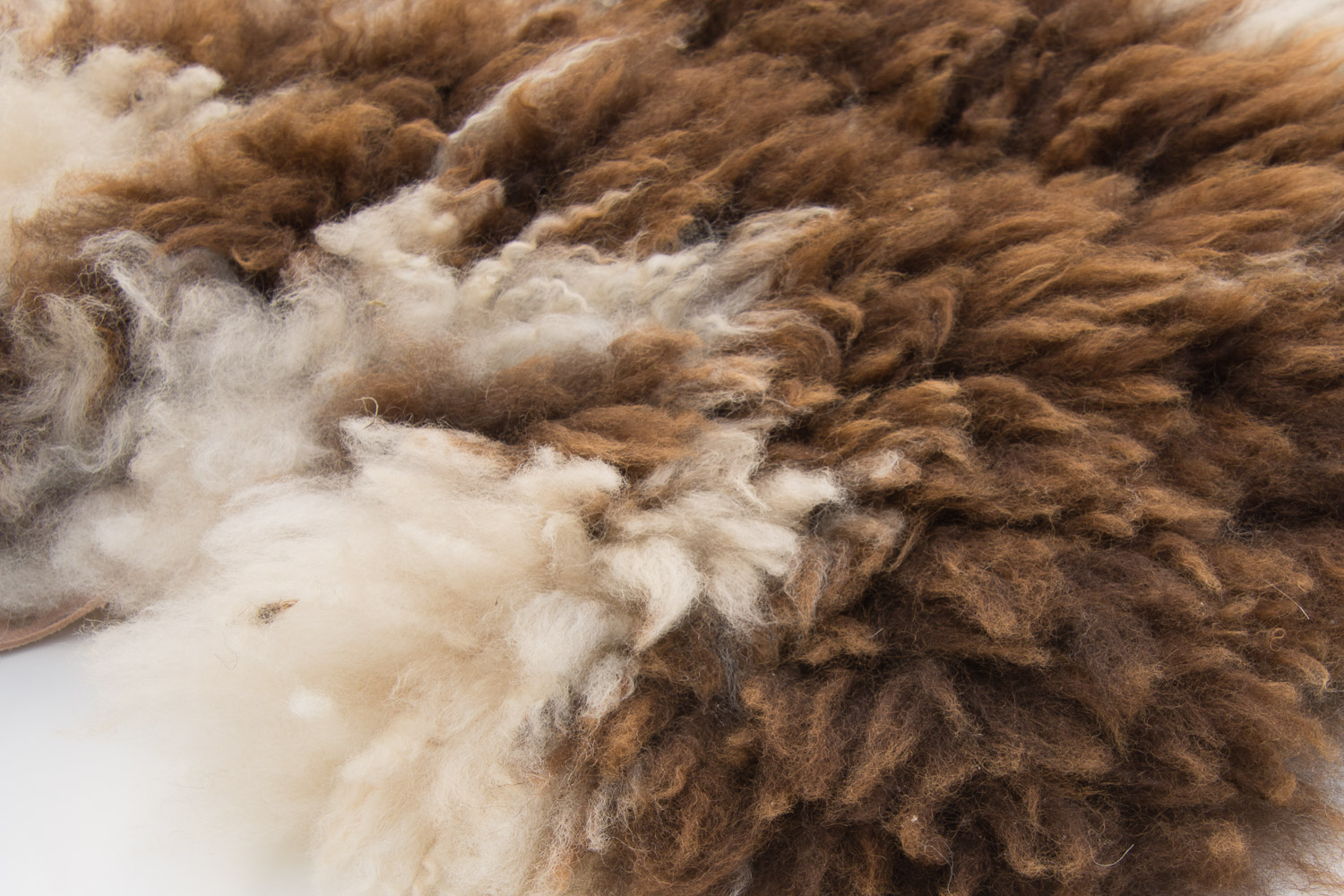How To Export Tanned Sheep Hides From Nigeria
How To Export Tanned Sheep Hides From Nigeria
Sheep skin is a valuable resource and Nigeria has a lot of it. Crafting the hides into leather and selling them is a valuable trade for many people in Nigeria. However, the process of exporting the sheep skin from Nigeria to other countries is often difficult and time-consuming. Here, are some things you need to know about exporting sheep skin from Nigeria.
Exporting sheep skins from Nigeria
Before we get into the details of exporting sheep skins from Nigeria, it’s important to know that not all sheepskins are the same. Nigeria, like other countries, has a diverse climate and terrain. The different portions of Nigeria have distinct climates and terrain and that means that sheepskins from different parts of Nigeria can behave differently.
Most people assume that sheepskins from all parts of Nigeria behave the same way. They think, “Well, it’s a sheepskin. What difference does it make where it comes from?”
The truth is that the quality of the leather varies based on where it comes from in Nigeria. Sheepskins from the arid regions of Nigeria provide a much thinner and softer leather than those from more humid regions.
So, if you’re an entrepreneur and you want to export sheep skins from Nigeria, you’ll need to know the type of skin you have so you can identify the best markets for it.
Another important thing to know about exporting sheep skins from Nigeria is that there are multiple routes to take in order to export them. If you don’t care about where your skins are ultimately going, you can just go through a tannery
The Nigerian leather industry
There are many different types of leather, the most common being sheep skin. Nigeria has plenty of sheep skin. It’s one of the leading countries in the production of leather hides.
However, exporting the sheep skin from Nigeria to other countries is often difficult and time-consuming. You need to know what you can export and what you can’t export to avoid any penalties or fines.
For example, you can export raw sheep skin if it’s tanned. The raw hides can be exported as long as they’re tanned. The raw hides can be tanned in any country with the right equipment needed for tanned sheep skins.
You can also export tanned sheep hides if they’ve been dyed dark brown or black. However, you can only export tanned sheep hides if they’ve been dyed dark brown or black if they meet certain conditions. They need to be tanned with a salt-based process that contains no chemical preservatives or metallic contaminants.
Additionally, you can export tanned sheep hides that have not been dyed dark brown or black but only if they’ve been tanned in Nigeria with a salt-based process that contains no chemical preservatives or
What is the process of exporting from Nigeria to other countries?
The process of exporting from Nigeria is complicated for a few reasons. First, the Nigerian government restricts the export of animal products, which includes sheep skin. In order to export, you need to get a permit from the Nigerian government.
Second, the process requires a good deal of time and a lot of planning. You have to find a buyer in the country you’re exporting to, find a freight company that will transport the hides from your port to the buyer’s destination, and find a ship to transport the hides.
Shipping is also an issue. If you’re shipping from Nigeria to the US, for example, the minimum cost for shipping is $2,500. That doesn’t include any customs fees you may have to pay in the US when you arrive with your shipment of sheep skin.
Exporting sheep skin can be a difficult process that takes a lot of time and effort. You need to secure permission from the Nigerian government and find someone in your destination country who will buy your products and handle shipping arrangements for you. For some people, this is an opportunity though. If you can get permission and make some connections within Nigeria and other countries, you could make a decent living selling sheep skins throughout
How can you export from Nigeria?
Exporting your sheep skin from Nigeria is complicated. You need to identify the skin as an animal product to export it out of the country. You also need to identify the skin as textile material to export it out of the country.
A lot of Nigerian people don’t know that they can’t just export any type of skin. For example, if you want to export tanned sheep hides from Nigeria to other countries, you need to classify it as textile material. This classification is made by checking the status of the skin according to Nigerian laws.
For example, if you want to export tanned sheep hides from Nigeria, you need to first check if the sheep skin is healthy before exporting it. This will make sure that the sheep skin will not be rejected for any reason.
Also, before exporting tanned sheep hides from Nigeria, you need to identify its animal product status. If the tanned sheep hide is an animal product, then it needs to be classified as an animal product. Otherwise, it needs to be classified as a textile material.
After checking these two statuses, you can export tanned sheep hides from Nigeria. It will be classified as a textile material and you won’t have any issues
Export from the Port of Lagos
Before you can export tanned sheep hides from Nigeria, you need to get them to the port. Hides are typically exported through the Port of Lagos. You can export them through other ports, but they will be more expensive.
Export from the Port of Calabar
The first thing you need to do is find the right port to export your goods from. The most common ports include Calabar and Lagos. You should check with the customs department to see which port has the most favorable fees and regulations.
Regardless of which port you choose, you will also need a bill of lading. This is a record of what you are exporting and where it is going.
Next, you will need to find a shipping company that is authorized to move your goods from Nigeria to another country. You will have to provide the shipping company with a copy of your bill of lading and your export license before they can proceed with your shipment.
Finally, you will need to pay the shipping company for the cost of the shipment. This fee will vary depending on the size of the shipment and the type of goods being shipped.
The Nigerian exports checklist
Before you export the sheep skin, you need to know if the sheep skin is tanned or not. If it is tanned, you are going to have an easier time exporting it because it will be up to the standards of the importing country. You also need to know if you are exporting finished or unfinished sheep skins. If it’s unfinished, you need to know if the sheep skin is wet or dry.
If you are exporting sheep skins that are wet, make sure they are dried out before exporting them. This can be done by spreading them out on the ground and leaving them there for a couple of days. If the sheep skin is dry, then you need to pack them in bundles and tie them up tightly with rope. If the sheep skins are tanned then you need to pack them in bundles and tie them up tightly with ropes.
Follow these tips and you will be able to export tanned sheep hides from Nigeria.
Get a Certificate of Origin
There are two main steps to exporting sheep skin from Nigeria. The first step is to get a certificate of origin. You can do this by getting an import/export license from Nigeria Customs Service. The second step is to get an animal health certificate.
Because you are exporting the sheep skin, you will need to fill out an export declaration form. This form will detail the type of animal, the weight of the animal, and the value of the animal.
You will also need to provide a bill of lading and a certificate of origin. The certificate of origin will show that the animal is from Nigeria and that it was handled according to Nigerian law. They also show that the animal does not have any communicable diseases.
It is important to note that you will need to provide a full set of documents for every skin you export. For example, if you are exporting twenty-five sheep skins, you will need twenty-five sets of all the necessary documents.
Once you have all the necessary documents, you will need to present them at the Nigerian customs office for examination and release. The customs officer will verify that the documents are in order and then stamp them with their seal. Your shipment can then be exported from Nigeria.<
The Nigerian government has very stringent rules on the export of animal hides. The Nigerian government requires that all animal skins are accompanied by a phytosanitary certificate to ensure that there are no animal diseases being exported.
Nigeria’s National Agency for Food and Drug Administration and Control (NAFDAC) also requires that all animal hides are accompanied by a CITES certificate to ensure that the entire skin is tanned.
Nigeria also requires that the skin is tanned with a specific type of tannin, which can be problematic as not everyone knows how to tan a sheep skin.
Additionally, Nigeria requires that the skin be tanned by a professional tanner with a license from the Nigerian government. If you want to export tanned sheep skins from Nigeria, you need to make sure you have all of the required documents and paperwork.
Fill in a declaration form
Nigeria has strict regulations on the export of goods. If you want to export sheep hides, you need to fill out a declaration form with items like your full name, number of hides, value of the shipment, and intended port of export. This form needs to be submitted to the Nigerian Customs Service 48 hours before you ship your goods.
If you want to export sheep skins to another country, you must get approval from the National Agency For Food And Drugs (NAFDAC) before exporting. NAFAC will give you an export permit if any of your goods are classified as dangerous.
The Department of Veterinary Services also needs to be contacted if any of your goods are classified as infected with animal or human diseases. You can submit your request for an Export Health Certificate online or in person.
If the goods you want to export are not classified as dangerous or infected with a disease, they will need a Certificate Of Origin from a local Chamber Of Commerce. This certificate verifies that your goods were not made from imported materials or parts.
If your exported goods have any chemical substances, they will need a Certificate Of Origin from the National Agency For Food And Drugs (NAFDAC).
The Nigerian Customs Service is the only entity which can
Get a commercial invoice and packing list
Nigerian law requires exporters to have a commercial invoice and packing list before they can export goods. The commercial invoice must include detailed information about the goods, such as the weight, dimensions, and value. It also needs to include an official seal of the issuing government agency.
The packing list is just as important. It needs to include detailed information about the goods, such as the number of packages, their weight, dimensions, and number. It also needs to list country of destination, country or origin of shipment, and the seal of the issuing government agency.
Nigerian law also requires all goods to be accompanied by a Certificate of Origin. The Certificate of Origin must show detailed information about the goods, such as weight, dimensions, and country of origin. It must also show an official seal of the issuing government agency on the Certificate of Origin.
The Certificate of Origin is important because it helps to confirm that the goods are free of any prohibited items. The Nigerian government prohibits items like weapons, drugs, and animal products from being exported.
Make sure your items are properly packaged to be shipped off. With all this information, you’ll be ready to export tanned sheep hides from Nigeria!
Conclusion
The Nigerian government has made the process of exporting skin from Nigeria to other countries more difficult. Now, you need to get an export license before you are able to sell the products.
It’s important to understand how you can get your sheep skin from Nigeria to other countries. You will need to get an export license from the Nigerian government if you want to export the skin. This can take a lot of time and effort, which is why it’s important to keep these pointers in mind when you are exporting sheep hides from Nigeria.
As you can see, there are many things that you need to consider when exporting sheep hide. If you want to make the process smoother, be sure to read over this article before you begin.







LEAVE A COMMENT
You must be logged in to post a comment.